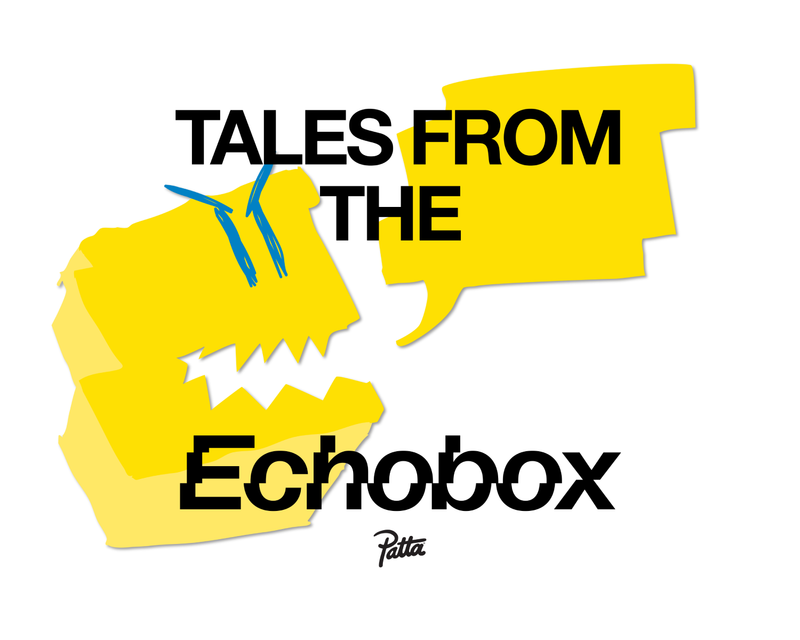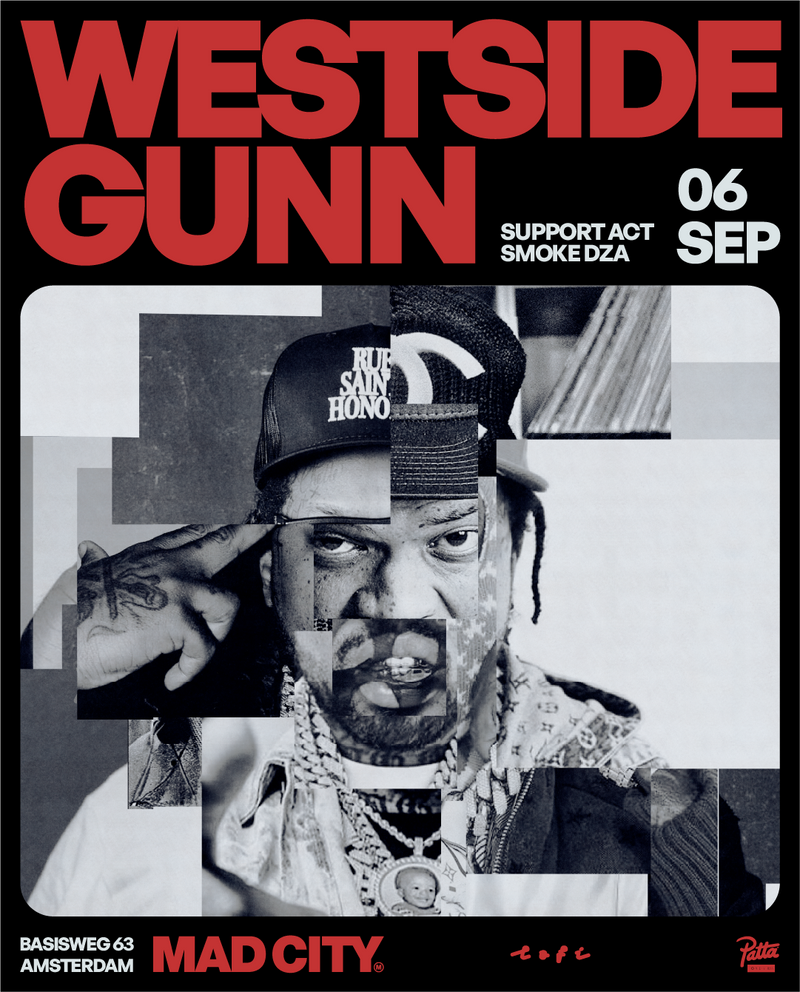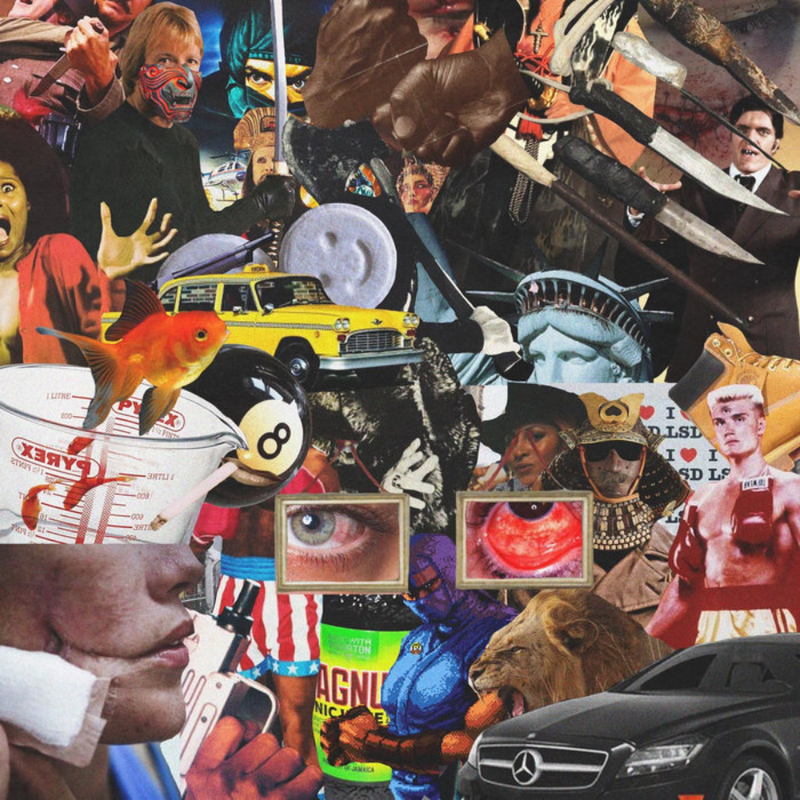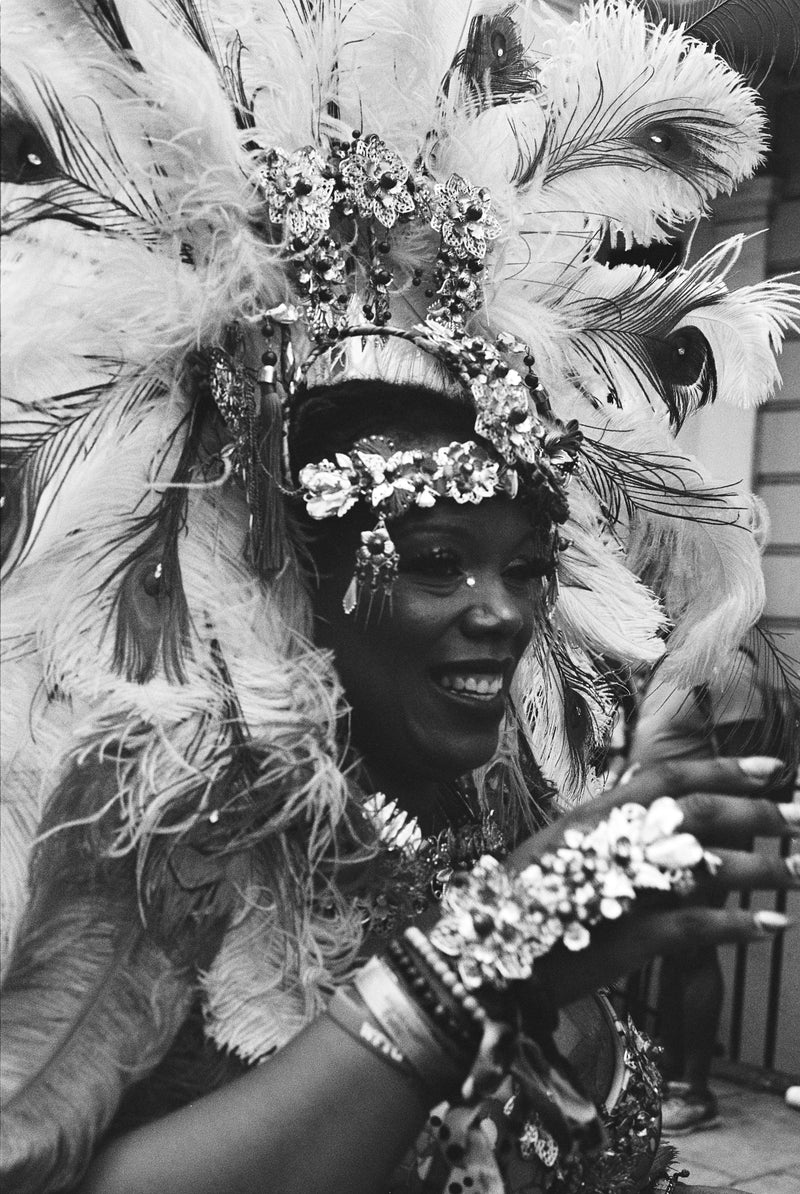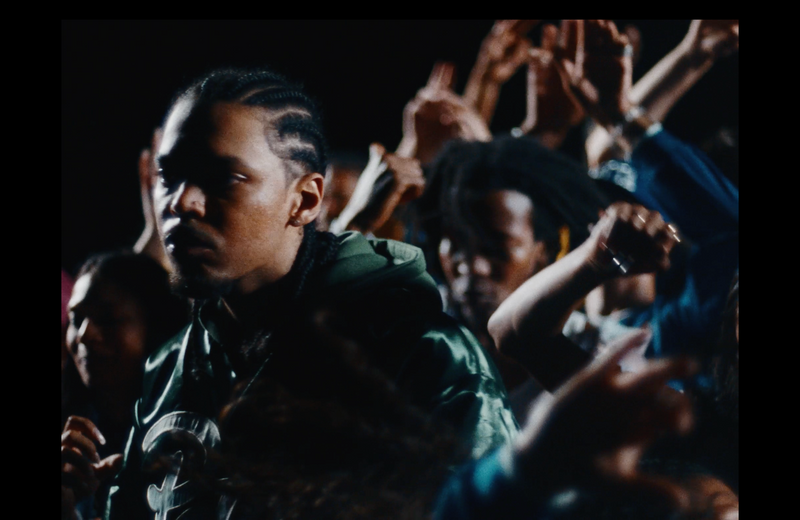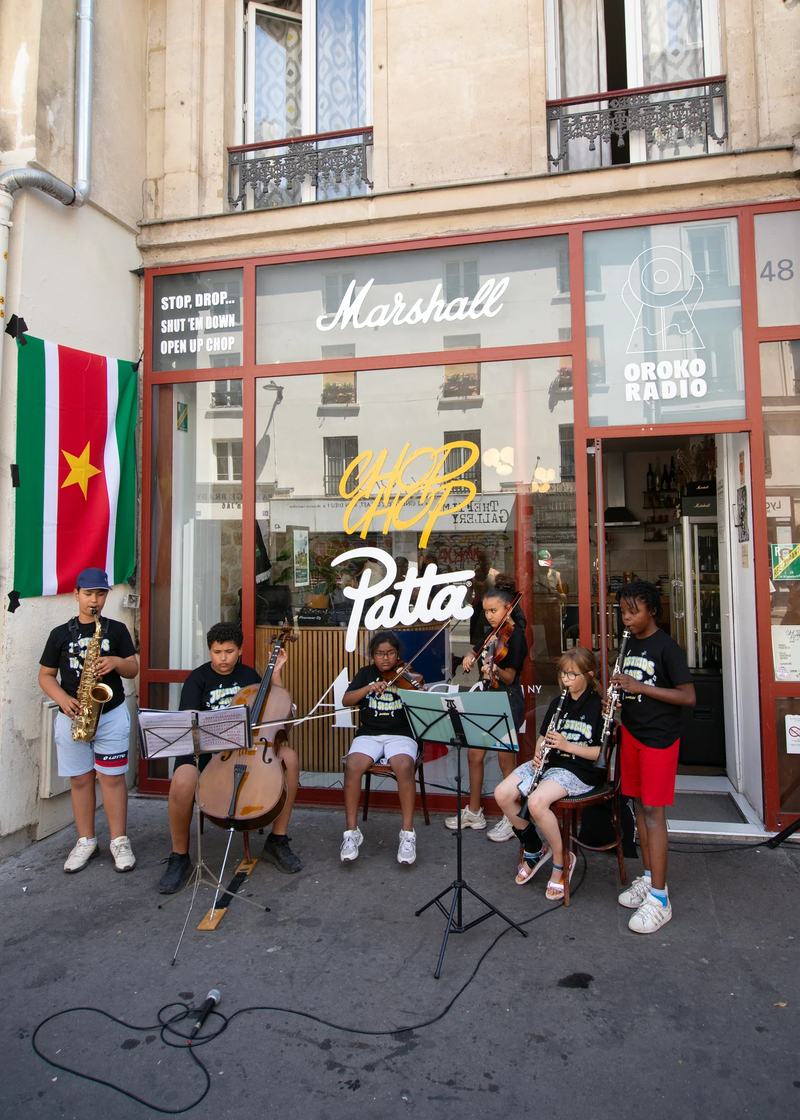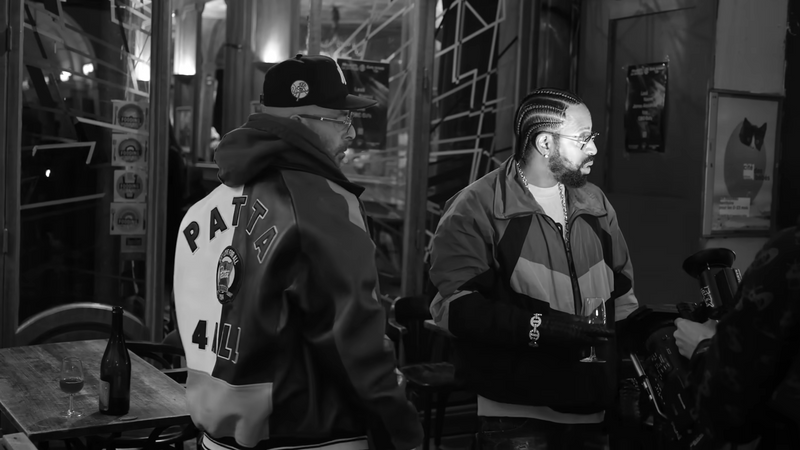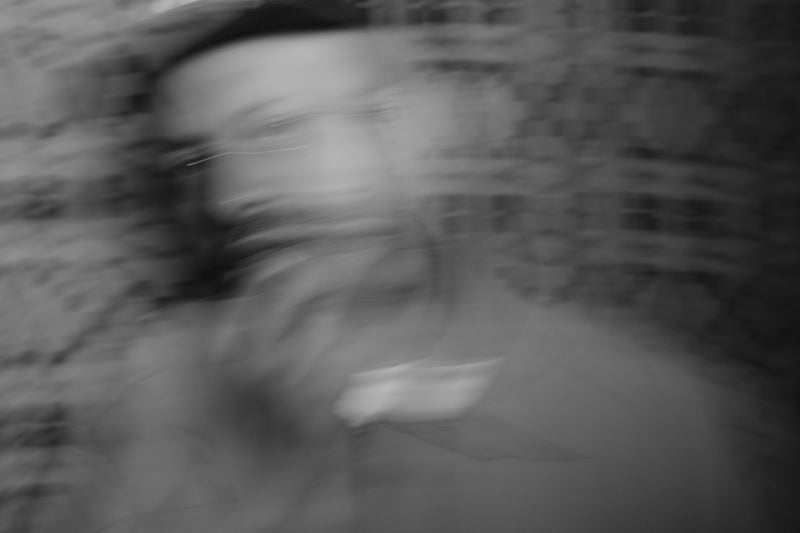Interview by Passion DzengaAhead of the upcoming Void: Music Against the Grain event at Amsterdam's Skatecafe on Friday, September 26th, we sat down with Parrish Smith and Mark Knekelhuis, better known as Volition Immanent. Their formative collaborative moments can be traced back to a dimly lit attic somewhere in the Netherlands, surrounded by stacks of tapes, discarded drum machines and buzzing synths. When producer Parrish and vocalist Mark first crossed paths in Amsterdam’s underground scene, neither imagined their late-night jam sessions would evolve into one of the most boundary-pushing projects in contemporary electronic music. Rooted in DIY culture, informed by punk energy and shaped by a love of imperfection, their sound refuses easy categorisation — veering between industrial intensity, hypnotic techno and raw noise experimentation. Over the past decade, the duo has cultivated a reputation for visceral live performances that blur the line between chaos and control, drawing audiences into something closer to ritual than entertainment.Now, with a new album on the horizon and a run of live performances throughout the latter half of this year, Parrish and Mark reflect on their origins, their creative process and the ever-shifting landscapes of subculture and community.Let’s start with the basics: how did you two meet, and what made you start collaborating?Parrish Smith: It goes back more than 10 years, around 2014 or 2015. I was making music in my parents’ attic, sharing tracks on SoundCloud and going out to underground parties. That’s how I came across what Knekelhuis was doing — throwing these wild, raw parties at Doka.Mark Knekelhuis: I was throwing parties back then and we met at one of them, when we booked Veronica Vasicka (founder of Minimal Wave). Ron van de Kerkhof — was part of Knekelhuis for a little while — and he basically said, “You two need to work together.” He told us to bring our hardware, lock ourselves in the attic and see if there was a spark. And there was — immediately.Parrish Smith: I think we recorded Swarm Behaviour that same night. It just clicked.Mark, you come from a punk background. How did that play into your connection with Parrish?Mark Knekelhuis: I’d been singing in punk bands in the past and didn’t really play instruments. Meeting someone like Stefan [Parrish], who was deep into making music — synthesisers, drum machines, all of it — opened up a whole new world for me.You mentioned Doka. What was it about that space and the Amsterdam scene at the time that brought you together?Mark Knekelhuis: After the club Trouw closed, there was a bit of a gap in the city. A lack of cool clubs. There were only a few options. Studio 80 was still around, but leaned years more towards minimal techno. Then Tessa Nijdam started with a curate and re-brand the place with very adventurous lineups. Doka came in with this raw energy — dirty concrete floors, tiles falling off the walls, water dripping from the ceiling. It was unusual for Amsterdam, and it matched the music we were into: Chicago house, industrial, EBM, techno.Parrish Smith: Knekelhuis’ parties booked underground artists who were really pushing boundaries. It was small but intense — people showed up and it became this tight-knit community.When you first started working together, did you always intend to become Volition Immanent? How did it evolve from jamming to becoming a proper project?Mark Knekelhuis: At first, we were just jamming every week in Stefan’s attic. He was incredibly productive — shelves full of mini-discs and tapes. We made track after track and at some point, we thought, “People like these. Maybe we should release them.”Parrish Smith: Yeah, we actually played shows before releasing anything — our first one was at Studio 80 with Red Light Radio. I brought my entire studio setup, reprogrammed everything and performed the tracks live. The feedback was amazing and that gave us the confidence to take it further.You started out playing live quite a bit. Do you write with live performance in mind or do the tracks naturally evolve that way?Parrish Smith: Honestly, we never wrote music specifically for live shows. It started with us jamming and the songs just came out of that process. Later on, we became more conceptual but in the beginning, it was all about capturing the moment.Mark Knekelhuis: Yeah, the early recordings were raw and stripped down — very immediate. Later, after the first album, we spent more time refining things, layering sounds and being intentional about what we wanted to express.Has your approach changed since your debut album?Parrish Smith: Definitely. Over the years, we talked a lot about how to move forward. Our lives and tastes have changed. We didn’t want to lock ourselves into being just a “live band.” The new music is more conceptual and layered — it’s something you can listen to at home, not just in a club.Mark Knekelhuis: For me it feels more mature now, sonically and emotionally. It’s deeper. We embraced more influences — from hardcore punk to trap, spoken word, postpunk and poetry. It’s a more diverse album than our earlier work.Parrish, you work heavily with hardware and machines instead of traditional punk instruments. Why?Parrish Smith: For me, touching buttons and working with machines is a way to focus and channel energy. I was drawn to cheap “unwanted” devices with ugly sounds and tried to make them beautiful. I like imperfections and I like working with tools people reject. It became a personal mission — at one point, I even challenged myself to only make live music for two years straight.Mark, how do you channel your punk roots and personal energy into the collaboration?Mark Knekelhuis: Punk gave me an outlet for anger and frustration when I was younger. But over time, through therapy and growing older, I’ve found more peace and gentleness in my life. The new music reflects that. It’s less about pure aggression and more about depth, subtlety and collective experience.Do you see your work as a kind of catharsis or ritual?Mark Knekelhuis: Absolutely. The best live shows are when everything aligns — the crowd, the energy, the sound — and to lose yourself in it. It’s almost ritualistic when that synergy happens.Parrish Smith: For me, it’s also about experimentation. I’ve always been drawn to noise, industrial and other niche genres. I want to present something new, even if it fails. Growing up in a Surinamese household, listening to traditional music but being obsessed with noise and metal, I didn’t really see role models doing what I wanted to do. So I pushed further into the unknown. That’s still what drives me.With your multidisciplinary approach and planned ideas in the studio, how much of your live shows are chaos and how much are controlled?Mark Knekelhuis: It’s definitely not all chaos. In the early days, it was closer to pure jamming — messy, spontaneous, sometimes unpredictable — but now we’ve moved toward a more organised performance. That said, we always leave enough space to improvise, to stretch tracks, to play with the energy in the room. From the audience’s perspective, it might feel chaotic but for us, the way we present the work is deliberate.Parrish Smith: Yeah, though we’ve had our fair share of real chaos. One of the biggest examples was a festival show in Paris. I brought this old TR-707 drum machine — the backbone of our sound — and customs had opened it up during travel. When I got to soundcheck, all my drum patterns were gone. I rewrote the entire live set in my hotel room but when we got on stage, the programs disappeared again.Mark Knekelhuis: And this was in front of like 2,000 people on the same stage as Princess Nokia. Nervebreaking. Parrish Smith: Exactly. I ended up doing the entire one-hour show completely on the fly. Total improvisation. And somehow… it became one of our best shows ever.Mark Knekelhuis: Yeah, it was chaos but the good kind — the kind that pushes you to new places. Out of chaos comes order. Has there been a particular show recently that really stood out?Mark Knekelhuis: The Resident Advisor stage at Horst earlier this year was a special one. We made sure every technical detail was perfect — sound, monitoring, everything — so we could really let go during the set. When everything is in place, you can create a kind of storm in the room.The crowd was insane. People were hanging from the ceiling, screaming, completely losing themselves. When we came off stage, we looked at each other like: “This is why we still play live.”It sounds like the live component is essential for you. Could Volition Immanent exist without it?Mark Knekelhuis: No, I don’t think so. Writing in the studio is important but if we weren’t playing live, something vital would be missing. That interaction with the crowd, that energy exchange — it’s part of the essence of the project.Parrish Smith: Yeah. Even though we don’t want to play as much as we used to, the live element will always be fundamental.Your management mentioned you’re often compared to bands like Cabaret Voltaire and Throbbing Gristle. Do you embrace those comparisons?Mark Knekelhuis: Absolutely. Those bands broke rules and created new realities with their cut-and-paste techniques — sampling, collaging, reshaping sound, out of the box-thinking and pushing boundaries. That’s something we’ve embraced from the beginning.Parrish Smith: Richard H. Kirk from Cabaret Voltaire was especially inspiring. He was multidisciplinary, constantly blending genres and that openness shaped what later became techno and other forms of electronic music. We’re very much aligned with that spirit.Will people hear some of the new material at the upcoming Void event?Mark Knekelhuis: Definitely. We’ll play a mix of new tracks — especially the more energetic ones — alongside older material. Void is the perfect space for it because of how diverse the curation is.I’m proud we’ve brought together so many genres and scenes for this lineup — punk, funk, rap, electronic — and it feels like a melting pot. There’s a generational storytelling aspect to it too, with acts like ESG & Shawty Pimp alongside us.You both came up in a time when you could find your people at skate parks or punk shows. Where does someone find that kind of community now?Mark Knekelhuis: It changed a lot. Back then, subcultures had physical spaces. But the world changed for the worse after 9/11. Squatting culture got banned, the rise of ‘normalized’ racism, the loss of our privacy. Activism started to decline and globalisation exploded, plus the internet shifted everything. I felt there was some kind of a feeling of defeat among progressive cultures in those years.Now, with the state of the world — authoritarian leaders, wars, climate crisis, rising inequality — I see anger returning to youth culture. Punk is coming back. There’s a new wave of bands, collectives and venues where people are reconnecting. Go visit OCCII, Vrankrijk. Parrish Smith: You see it in the alternative nightlife scene too. These hybrid spaces — part club, part DIY venue — are where kids who don’t fit the mainstream are meeting. And it’s becoming more diverse, racially and gender-wise, than it ever was when we started.When someone sees you live for the first time, what do you want them to leave with?Mark Knekelhuis: I don’t want to dictate what they should feel — but I hope they feel something they won’t forget. It could be joy, discomfort, energy, catharsis — anything, as long as it moves them.Parrish Smith: Exactly. We want the crowd to activate something inside themselves. The shows work best when we’re improvising and reacting to the room — there’s this moment where everything locks in and the energy becomes mutual. That’s when it feels alive.On September 26th, VOID transforms Skatecafé Amsterdam into a nighttime festival celebrating music that defies boundaries — and Volition Immanent are at the heart of it. Known for their visceral, high-voltage live shows, the duo bring their raw, ritualistic energy to a lineup that bridges generations and genres.Headlined by legendary punk pioneers ESG in their final European performance, the night also features dub icon Mad Professor, Memphis rap visionary Shawty Pimp and a host of cutting-edge acts spanning post-punk, techno, garage-punk and experimental club sounds. Tickets are on sale now — don’t miss it.
